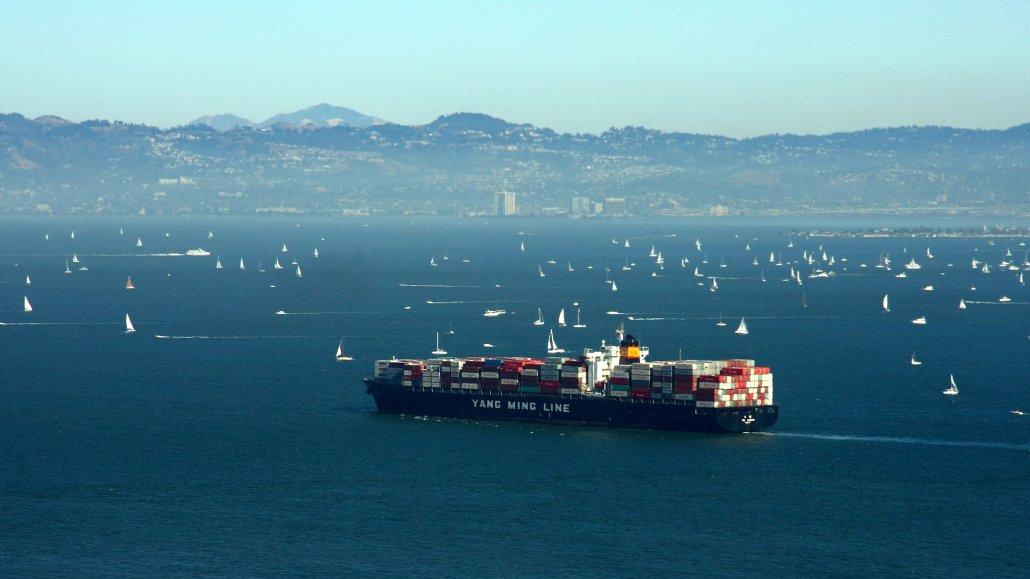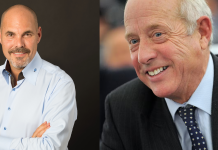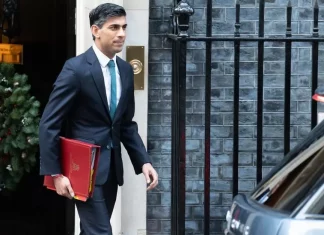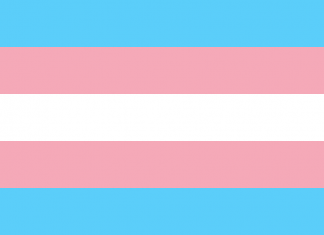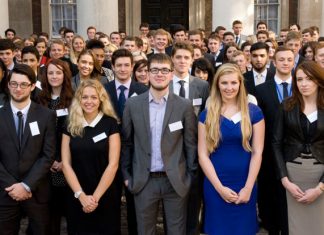As the Brexit debate drags on, there seems to be much confusion about tariffs. Neither politicians nor MSM journalists seem to understand the basic concepts. This is natural as politicians, bureaucrats & journalists made a conscious decision at university to follow a career path unconnected with commerce. In short they are outside their comfort zone when it comes to trade negotiations.
Yet the basic concept is quite easy, although agreements can be complex.
What is the point of tariffs?
Tariffs, sometimes referred to as import duties, are an historic phenomenon. In their current form they go back to the Middle Ages. Governments, or monarchs of yesteryear needed to raise money. Wars & welfare need to be paid for, tariffs are just another instrument for so doing. There are of course in the modern world scores of other taxes, but let us stick here just to tariffs.
Raising money for government is now just one aspect of tariffs & import duties. In a modern democracy a government tries to strike a balance between squeezing an enfranchised consumer & protecting an influential producer.
So great has this dichotomy become for all those involved consumer groups vie with industrial lobbyists to get the best possible deal for their vested interest.
Set a tariff too high & the consumer might rebel, remove it completely & a global competitor will take the market share. There is the modern joker in the European pack with VAT, with some exceptions larger than tariffs on globally imported goods but which is applied equally.
Where does a customs union come in?
The EU single market is the only remaining customs union in the world. Ironically it is anachronistic, bureaucratic & inherently anti-consumer. The whole point is to protect domestic producers. The role of the lobbyist is to fight tooth & nail to retain them. Or if the lobbyist comes from outside the cartel, to remove or reduce them.
The French wine trade rely on import tariffs to maintain market share against new or third world wines of equal quality but lower price.
The European auto manufacturer relies on tariffs to give them a protective screen against cars of equal specification from more competitive economies.
European clothes & leather goods manufacturers could never compete with global competition on price, but can on style or design. This triggers a counter tariff by global importers.
Incidentally tariffs are not always highly visible. Tariff free arrangements are often trumpeted but fake. The EU claims a wine tariff free arrangement with South Africa, but it is capped by quotas. Sometimes even within the single market obstructions are placed to protect local manufactures.
Top British pram manufacturers Silver King recently recalled their export stock from France after bogus regulatory objections. Sometimes tariff free agreements are reached but with such complicated caveats trade becomes impractical, France & Belgian customs officers are masters of this field.
None of this is difficult to understand, yet MSM & politicians struggle. Notice how the interests of the consumer are totally ignored by all this. Americans call this ‘pork barrel politics’.
Who wins & who loses?
One golden rule is the consumer always loses. A tariff always means a product is more expensive than it needs to be. Only one person can pay, the consumer. There is no one else in the loop.
Big business loves big trade deals, they keep out the smaller players.
Incidentally, any tax, anywhere, anyhow is always paid by the consumer. The difference between the medieval monarch & the modern government is the warlord of yesteryear never pretended it was for the benefit of the serf. The medieval monarch was an honest thief.
The unschooled in such matters as these, by definition politicians & journalists (again I absolve Liam Halligan & Allister Heath), always immediately bemoan the lot of the home team producer.
An international phenomenon of long standing, the Corn Laws in Great Britain & the war of 1860 in America, (fought over tariffs protecting the industrial north threatened by southern secession from the Union, revisionist history pretends it was over slave emancipation, a view given short shrift by the real historical scholar).
The point to haul in here is tariffs are about billions of dollars, vested interests & worth fighting wars over. Napoleon’s invasion of Russia was about tariffs on British goods.
How do tariffs operate?
Each country or trade bloc negotiates its tariff position either from the platform of a trade bloc or via the World Trade Organisation.
The WTO is not a trade bloc but a catalyst for negotiation with a set of mutually agreed rules.
I leave it aside here as it is something of a red herring in the debate. Suffice to say it works reasonably well as a starting platform for over one hundred & twenty economies. But it is but a starting point for most.
Why are tariffs a bad thing?
Leaving aside the main problem, which is the disadvantage to the consumer, tariffs stifle economies, product development & innovation.
The original modern mastermind of the negative implications of trade barriers was Frederick Bastiat, ironically a philosopher citizen of France, a protectionist economy since before the days of Napoleon.
Bastiat understood the economic phenomenon of the ‘unseen’, something that has disappeared from contemporary economic thought.
Economic thought today is reactive, short term & unstructured.
Modern monetary theory (MMT) replaces realistic assessment of international trade problems.
The fake money spigot is reached for in the same way as the alcoholic reaches for the whisky bottle. This suits modern day politicians who live by the quick fix.
Let us dissect some examples of tariff failure
Trump’s Steel Tariffs.
Steel workers are political supporters of President Trump. The idea of tariffs on foreign steel looked good initially, it would protect jobs.
But the tariffs made steel more expensive. So in protecting steel workers, car, motorcycle & white goods manufacturers got burned. Their products became less competitive. The result being one million steel workers got protection whilst six million became threatened. Bastiat would have seen that coming immediately.
Tariffs are a suggested solution to Chinese imports. But the American consumer was getting cheap goods in exchange for worthless paper (dollar bills) which the US produces for no cost because they are of no value.
Today in Britain politicians, MSM & bureaucrats fear tariffs on UK exports to the EU. Bur the trade imbalance is 80:20 in favour of the EU. The UK is the biggest customer for BMW, it buys 18% of French wine production, champagne imports are massive, Britain is a major customer for Skoda in the Czech Republic. Yet such is the total misunderstanding of international tariffs the British government is proposing to donate £39 billion to the customs union to facilitate continuing as a major customer. Try explaining that not just to the proverbial man from Mars but to a Yorkshire artisan in the pub.
Admittedly federalist politicians pretend not to understand, political union is constantly presented as a magnificent trade agreement. The political dream is masked by a fear campaign on trade.
Yet barely 8% of British GDP is connected in anyway with EU trade.
The British economy is much like any other, with the exception of export economies Germany & China insofar as societies constitute the butcher, hairdresser, cab driver, mechanic, shopkeeper, teacher, doctor and gardener. In short most of us have nothing whatsoever to do with the EU except as an occasional customer.
What should Britain do?
In an ideal world, i.e. not one by special interest groups, we should declare for free trade.
Florida oranges are cheaper than Spanish, Mexican Avocados are cheaper than European, New Zealand Lamb is 40% cheaper than European. New world fine wines are cheaper than their French counterparts. Californian champagne is half the price of French.
Europe does fashion, quality, style, technology & many other exportable products. Britain is primarily a service nation with specialist premium manufacturing.
It is important to remember, people trade with people.
My wife bought a Fiat Arbarth 595. It is fabulous in every way, style, pace design innovation & build quality. But that should have nothing to do with the Italian or British government. It is none of their business.
Let me leave you with a famous Bastiat quotation.
“When trade crosses frontiers, armies don’t”.
